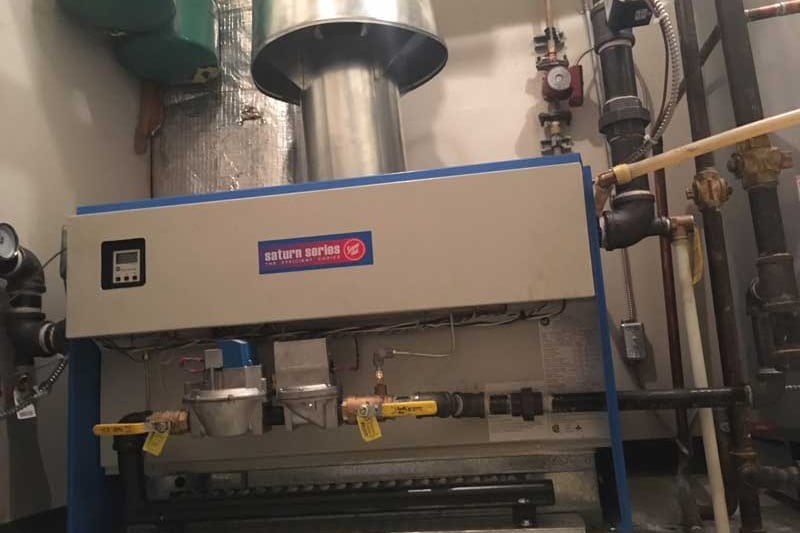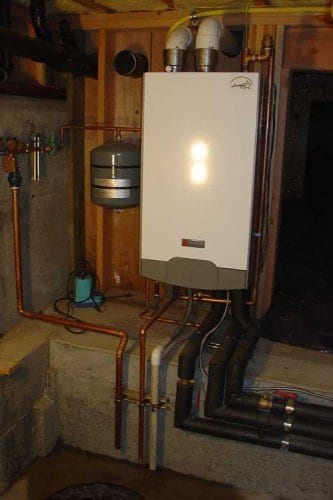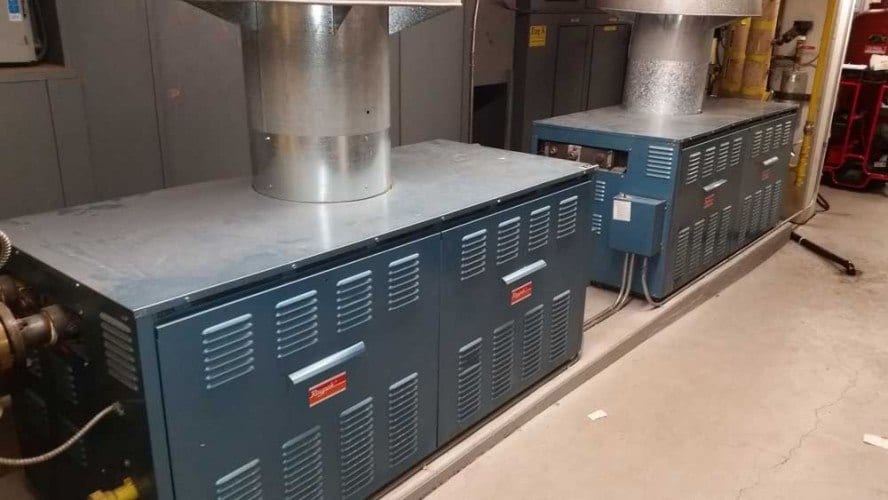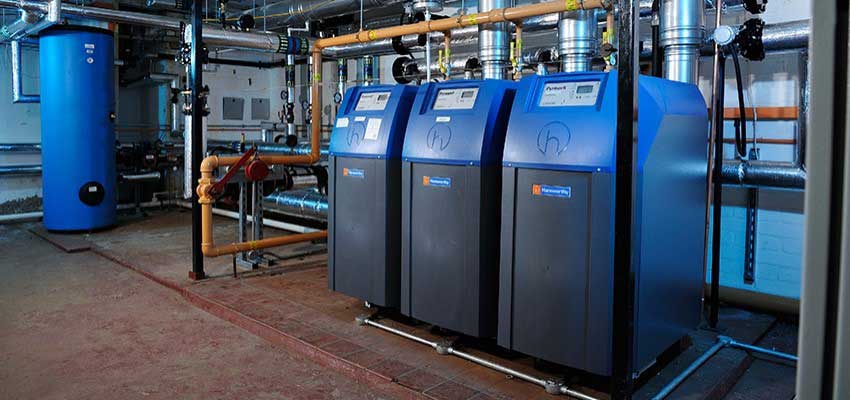Non-Condensing Boiler vs. Condensing Boiler: Which is the Better Option?
When it comes to heating buildings, pools, floors or radiators, it’s important to have a boiler with the ability to meet your heating needs. But when both the traditional non-condensing and newer condensing boilers are both reliable and have the capacity to suit those needs, how do you choose which system is best? Let’s boil it down.
| Non-Condensing Boiler | Condensing Boiler |
|---|---|
|
|
Based on what factors are most important for you and your business, the following additional breakdown should help you make an informed decision.
Carbon Footprint
A condensing boiler significantly reduces carbon emissions, and therefore, your carbon footprint. It does this by repurposing much of the heated CO2 and condensation rather than emitting the flue products to the environment. The traditional boiler, on the other hand, releases its flue products to the outdoors.
Efficiency
Condensing boilers conserve more electricity and/or gas. The efficiency difference between a conventional and condensing boiler is about 75% efficiency vs. 90-95% efficiency. That said, a newer non-condensing boiler can reach up to 78% efficiency.
What this means is that you receive the same amount of heat for less money with a condensing unit. The actual amount of savings differs for each boiler. A Sherwood Mechanical technician can check your present boiler’s energy factor for a relevant comparison.
Install and Maintenance
Because a condensing boiler has a more complex design requiring more parts, a technician will need to add additional parts during installation, such as a condensate drain, and make changes to the piping system.
Similarly, maintenance of a condensing boiler is more complicated with all the other extra components added during your condensing boiler install.
Price
Clearly, one of the reasons conventional boilers are still an option is the cost associated with installing and maintaining condensing boilers. But keep in mind that, although a condensing boiler is costlier at the onset, there are potential energy savings with the more efficient condensing boiler.
Need help choosing the right boiler for your residential and commercial project?
Basically, what it boils down to (pun intended) is this: if you want an energy-efficient boiler that will decrease your month heating bill, while reducing your environmental footprint, choose installing a condensing boiler. However, if the initial cost for the boiler is a primary factor, a traditional non-condensing boiler is your best option. Sherwood Mechanical can help you choose the right boiler for your commercial or residential project, including weighing the pros and cons of a boiler repair vs. a replacement unit.
After a thorough inspection of your existing unit, our technicians will determine its energy efficiency and its remaining life expectancy. Next, we will recommend the most appropriate boiler based on the space (square footage) to be heated. Our recommendation may include more than one option, accounting for your long-term plans and budget. Our goal is to help you make an informed decision. Once you choose the most appropriate boiler for your needs, we take care of the rest, including order, delivery and installation of the boiler.
To learn more about the pros and cons of various types of boilers and to schedule an estimate for a new or retrofitted boiler, call Sherwood Mechanical at 780-449-5322 or email us at sandy@sherwoodmech.com.













